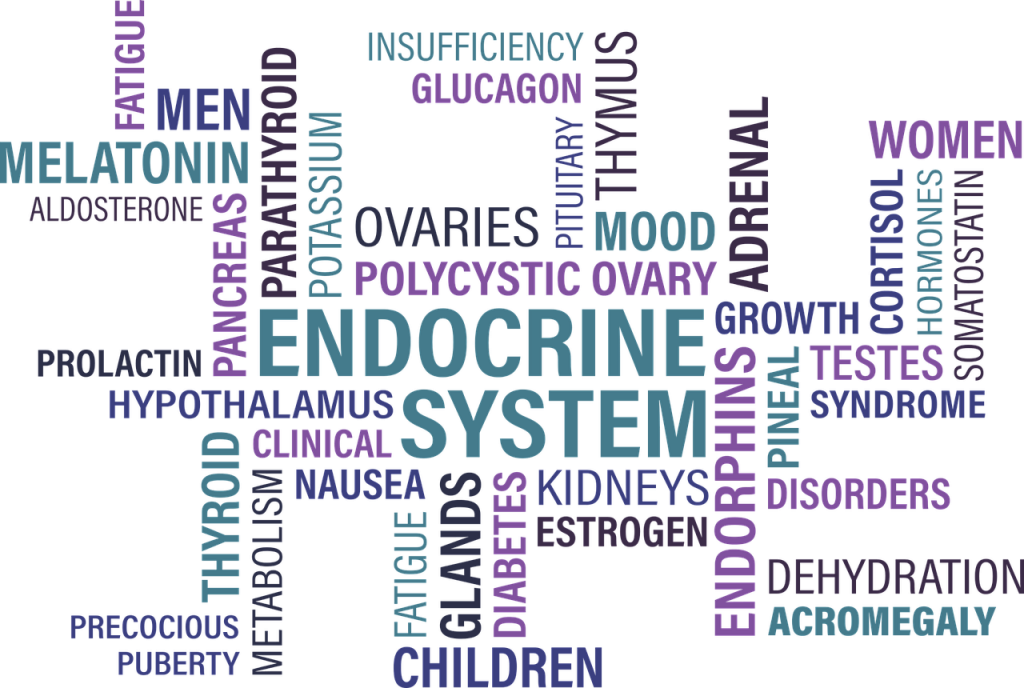About Hypothyroidism and Common Health Problem
The lack of thyroid hormones slows down the metabolism and thus all the activities in the body, giving a combination of many symptoms related to the slowness of bodily processes.
Hypothyroidism is common, but the frequency of the condition is not well determined. The frequency is much greater among people over 50 years of age.
THE THYROID GLAND AND ITS HORMONES
To understand the hypothyroidism, some knowledge about the thyroid gland and its hormones is essential.
The thyroid gland produces hormones that accelerate and in other wise regulate metabolism. A part of metabolism is the process of breaking down energy-containing nutrients and using the energy to produce molecules that all the processes and activities in the body use as fuel. Another part is the production of molecules that the body use as building materials.
The thyroid makes 4 hormones:
- Thyroxin (T4)
- triiodothyronine (T3)
- diiodothyronine (T2)
- monoiodothyronine (T1).
The hormones contain iodine, and the figures tell about the number of iodine atoms in each hormone molecule. T3 is not made directly but is produced from T4. T3 is a more efficient hormone than T4. Therefore this conversion is important.
The pituitary, a gland under the brain, produces a hormone called thyrotropin or thyroid-stimulating hormone (TSH) that enhances the activity of the thyroid gland. If the body has too little thyroid hormone in the blood, the pituitary produces more thyrotropin. This makes the thyroid gland speed up its own production. By a too heavy thyroid hormone concentration, less thyrotropin is produced by the pituitary, and the thyroid gland slows down. This feedback mechanism regulates the metabolism of the whole body.
THE SYMPTOMS AND COMPLICATIONS
The most common early symptoms are:
- Mental and physical fatigue
- weakness
- weight gain or over-weight
- depression.
One or more of these symptoms also use to appear early:
- Constipation
- sensitivity to coldness
- cold hands and feet
- thick tongue
- decreased sweating
- dry hair
- thin brittle hair
- thin brittle nails
- muscle and joint pain
- pale or yellowish skin
One or more of these symptoms usually appear later:
- Poor memory
- a slow thought process, drowsiness, slow speech
- thinning of eyebrows
- hoarseness
- poor circulation
- dry and flaky skin, skin thickening
- decreased taste and smell
- menstrual irregularities
- puffy face, puffy hands and feet, swelling of extremities, overall swelling,
- muscle spasms, muscle atrophy, joint stiffness.
Hypothyroidism increases the risk of elevated cholesterol levels, heart disease and diabetes (diabetes mellitus). This occurs even by moderately decreased thyroid production.
THE MECHANISMS AND CAUSES OF HYPOTHYROIDISM
By hypothyroidism, the body does not get enough thyroid hormone, or the hormones do not work effectively in the body. This causes the metabolism to slow down. When the metabolism decreases, the processes in the body do not get enough fuel and building materials, and all the body activities will therefore slow down. Energy containing nutrient will also be stored as fat since they are not broken down.
There are several reasons for hypothyroidism, each giving a variant of the disease:
- An autoimmune reaction against the thyroid tissue can destroy the capability of the thyroid gland to produce hormones (for example Hashimoto’s disease).
- Sometimes the production of T3 by conversion from T4 is impaired. The total amount of hormones may be normal in these cases, but the body is still lacking T3 and gets the symptoms of hypothyroidism.
- Iodine deficiency can cause hypothyroidism since the thyroid hormones contain iodine. In Europe and America, the food is seldom short in iodine, but bad nutrition may result in iodine deficiency.
- Surgery or radiation at the thyroid area can destroy enough tissue to cause hypothyroidism.
- Injury or disease in the pituitary or of the part of the brain controlling the pituitary may cause a decrease in secreted thyrotropin, and then the thyroid will respond by producing less of its own hormones with hypothyroidism as a result.
- Some people have symptoms of hypothyroidism even though the amount of thyroid hormone in the blood is normal. One of the symptoms is raised levels of thyrotropin, indicating that the body signals the need for more thyroid hormones. This variant may be caused by conditions elsewhere in the body that make it difficult for the hormone to reach its destination in the cells. In many of these cases, the immune system produces antibodies against the thyroid hormones. This variant is called sub-clinical hypothyroidism and responds to the same treatment as ordinary hypothyroidism.
- Some types of food can contribute to a depressed thyroid function or aggravate hypothyroidism when eaten raw in great amounts: Brussel sprouts, broccoli, corn oil, cabbage, cauliflower, kale, kohlrabi, radishes, rutabaga, soy and turnips. By cooking these vegetables, the depressing effect is decreased.
- Factors suspected of causing hypothyroidism are artificial sweetener aspartame, mercury pollution, dental fillings containing mercury, fluoride and heavy metal pollution.
HOW CAN HYPOTHYROIDISM BE TREATED
For serious hypothyroidism caused by tissue destruction, an external supplement of thyroid hormones would be advised.
When the condition is caused by a lack of iodine in the diet, dietary changes and iodine supplements could be a part of the treatment.
Less serious, but painful hypothyroidism is sometimes also treated with hormone supplements.
You can sometimes alleviate hypothyroidism by reducing the amount of food suspected for depressing the thyroid function: Brussel sprouts, broccoli, corn oil, cabbage, cauliflower, kale, kohlrabi, radishes, rutabaga, soy, soy products and turnips. However, these food types are valuable in many ways, so it is probably not wise to cut them out totally. Also try to avoid artificial ingredients like the sweetener aspartame, conserving additives and fluoride.
Changing out mercury dental fillings and avoiding mercury or heavy metal exposure may help to ameliorate the condition.
You may also alleviate the condition by eating food that stimulates the thyroid function according to practical experience: Chia seed, dulse, fish from the ocean, flaxseed, pumpkin seed, seaweed, coconut and brewer yeast.

Hypothyroidism (Low Thyroid).
Hypothyroidism (low thyroid)is a hormone imbalance caused when the thyroid does not produce enough thyroid hormone.
What are the Symptoms of Hypothyroid? The most common are fatigue and intolerance to cold. If everybody is wearing short sleeves and you are wearing a jacket, you most likely have a hypothyroid issue. Other common symptoms are mental instability or depression, muscle weakness and fatigue, poor memory, lethargy and headaches. Still other symptoms are deep slow speech, loss of hair, cold hands and feet, constipation, pale thick skin, brittle nails, and swelling of the face and eyelids. And finally excessive and painful menstrual flow, nervousness and palpitations.
How to Know for Sure?
You can ask your doctor to perform a thyroid test and/or conduct the following simple self-test at home:
You must first sleep through a full night. (The test will not work if you have gotten up or gone to the bathroom.) When you are awake but still in bed, take your temperature in your armpit. Do this and record the temperatures 3 days in a row. A normal reading would be between 97.8 – 98.2 Fahrenheit. A reading below 97.8 would indicate hypothyroid activity. (Above 98.2 would indicate hyperthyroid activity.) If you are menstruating, take your temperature on the 2nd, 3rd and 4th day of the period.
Causative Influences
Influences which can contribute to Hypothryroidism are malnourishment, and thyroid and pituitary exhaustion due to excessive caffeine, sugar, alcohol and other stimulants. Malnourishment, of course, does not mean lack of food, but rather, a diet of processed, unnatural foods that are not nourishing. Other environmental factors include the consumption of fluoridated water, and pesticides and radiation.
Women Take Note
One out of eight women will develop hypothyroid problems in their life. The condition often manifests between 30 and 50, along with the hormonal changes taking place then. As soon as you enter this age range, it pays to stay alert to this issue.

Menopause and Hypothyroidism
In the United States, more than 20% of the women in menopause are diagnosed with hypothyroidism – a sluggish thyroid. Women need to understand the consequences of menopause on the thyroid, as with the increase in age, more women are affected by hypothyroidism. Menopause and hypothyroidism have common symptoms, such as depressed mood, decreased energy and decreased memory, among others. Often these symptoms are taken to be due to menopause, leading to delayed diagnosis of hypothyroidism.
Hormones in women’s bodies are balanced delicately and hormonal imbalance occurs during pregnancy, perimenopause, and menopause. In the time leading up to menopause, the clockwork menstrual cycles may begin to become erratic. This could be because of highs and lows in estrogen and progesterone.
Hypothyroidism, which is seven times more often associated with women than with men, also occurs because of hormonal imbalance. Certain doctors feel that estrogen dominance – excess of estrogen combined with low progesterone – typically occurs in early perimenopause. They feel restricting estrogen dominance prevents complications in perimenopause, including hypothyroidism. In fact, estrogen is required to be counterbalanced with progesterone to avoid hypothyroidism.
Treatment Options of Hypothyroidism
Hypothyroidism – the under-active thyroid is primarily due to the underproduction of the thyroid’s main hormone – Thyroxine (T4). This hormone has to be converted to the active thyroid – the Triiodothyronine (T3), by the liver. Then only it can be effectively utilized by the body. Different practitioners have their own ways of tackling hypothyroidism.
Many women do not believe in synthetic hormones for treating their hypothyroidism and relieve their symptoms with nutrition, exercise, stress-relieving techniques and such natural treatments. Rich nutrition is the basis of hormonal balance. Rich nutrition should consist of: Multivitamins and/or minerals, Essential fatty acids, Calcium and/or magnesium. If you want to know more about how to do it without synthetic hormones, click here and get a great book with a 4-week program plan to get a healthier and happier life.
Such essential nutrients, when supplementing a healthy eating plan, support the body’s endocrine, immune and other vital systems.

Life isn’t about finding yourself. Life is about creating yourself.
George Bernard Shaw
If you have enjoyed our article, check for more interesting articles and tips on our site Spry Ladies, check our Facebook, or our pins on Pinterest and follow us on YouTube.


